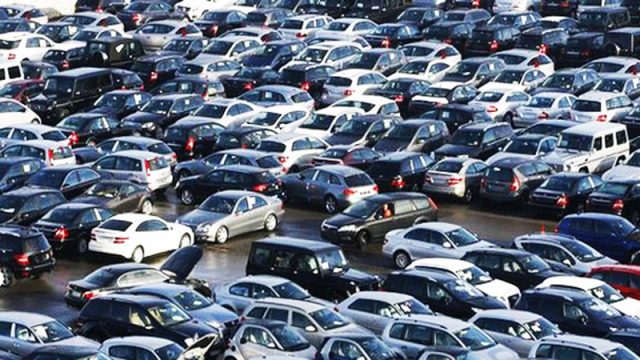In violation of the commerce ministry’s rules, as many as 1000 imported cars have piled up at the ports waiting for a clearance from the government.
In a bid to control the outflow of foreign exchange from the country, the government had imposed several restrictions on the import of used cars from January 2019. Before this period, around 34,000 cars were imported into the country. However, after January 2019 only 1800 cars made their way in imports out of which more than half are stuck at the ports waiting for clearance. These cars are stranded there because they were imported in violation of the commerce ministry’s rules of import. The government’s decision to impose restrictions on the import of cars backfired with a huge loss in the collection of revenue. On the other hand, the local auto industry is also going through a patchy time as its car sales plunged to almost half last month. It is not yet clear whether how many cars will get clearance after payment of heavy penalties.
On the other side of the story, immense pressure is being built upon the government to allow the commercial importers to import the cars under several restrictions by making a few amendments in its rules. The Federal Board of Revenue (FBR) is particularly interested in this move as it has suggested a relaxation for commercial importers by imposing certain Quantitative Restrictions (QR’s). The department is particularly concerned about the revenue it could generate for them and also believes that this would bring competition in the auto industry of Pakistan. The Ministry of Commerce had formulated strict rules for the import of three-years-old used cars and imposed the condition of bank account details of the importer and only a close relative to clear the vehicle imported into the country. However, the malpractices have continued as only 5% genuine Overseas Pakistanis imported vehicles in this tenure. All the rest of the cars were imported by the importers’ mafia by using the passports of Overseas Pakistanis.
The government is now under pressure to grant one-time relaxation to clear the stuck vehicles parked at the ports. However, the government is in a state where they found themselves caught up in the middle. The decision to allow relaxation in the rules this time would be alleged as the importers used their influence and money to force the government. On the other hand, if the government stands by its restrictions, they would still be blamed that the local auto manufacturers had influenced them in not allowing the importers. A meeting was also arranged to discuss the possibility of introducing a new scheme for commercial importers. All the concerned departments including Finance Division, Commerce Ministry and Federal Board of Revenue (FBR) presented its views in this regard.
According to the Finance Division, the Import Policy Order 2016 for imported cars was introduced to facilitate the Overseas Pakistanis. The Commerce Division allowed them to import cars under various schemes such as personal baggage, transfer of residence and gifts scheme. However, the scheme was consistently misused by the commercial importers. It resulted in money laundering and the outflow of foreign exchange from the country. Hence, the Commerce Division made a few amendments in the imports mechanism as it imposed a condition that all the taxes and duties shall be paid out of foreign exchange arranged by either:
- Pakistani nationals themselves or,
- A local recipient supported by bank encashment certificate that shows the conversion of foreign remittance to local currency under the following conditions:
- The remittance used for the payment of duties and taxes shall originate from the account of Pakistani national sending the vehicle from abroad.
- The remittance used for the payment of duties and taxes shall either be received in the account of a Pakistani national. In case of a non-existent account, in the account of his family member.
Nonetheless, the number of stuck vehicles has piled to such a staggering number in a short time. The government is also looking to find a way to clear them and eventually formulate a clear cut permanent policy framework in the future. That’s it from our side for now. Stay with PakWheels for more updates on the automobile industry.


